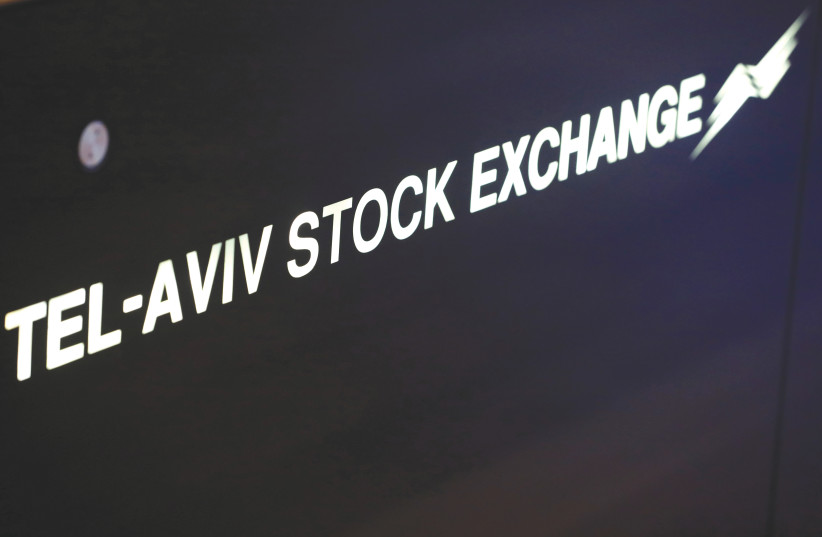Over the past year, discussions in Israeli hi-tech circles have covered an array of pressing issues: the domestic political climate, fundraising challenges, layoffs, ongoing military conflict, and employees being called to reserve duty – with hopes for the swift return of hostages. However, as the US presidential election draws near, a topic from thousands of miles away is emerging: who will be the next president of the United States and how this will impact Israeli startups and, perhaps most importantly, the timing and conditions for IPOs.
Israeli startups on standby
After a two-year drought in IPOs, many Israeli startups are now on standby, poised for the anticipated reopening of the IPO window next year. The signs are promising. According to IVC data, Israeli hi-tech companies raised $2.9 billion in the second quarter, signaling an easing in the decline of investment flow. This marks the first quarter since early 2022 without a year-on-year decline. The macroeconomic environment is gradually improving, and trends in mergers and acquisitions reveal that companies are focusing on profitability and bolstering their value propositions.
The end of the ongoing war, which we all hope will come soon, would add greater certainty to the market, likely unlocking investments and initiatives that have been delayed during this turbulent period. As company valuations stabilize, and firms pursue profitability, founders are revisiting IPO plans with a more cautious, measured approach. This creates favorable conditions for exits and public offerings. The postponement of the Wiz deal [a $23bn takeover offer from Alphabet], aimed toward an IPO, serves as a prime example of this readiness in the market.
The role of the outcome in IPO timing
The outcome of the US presidential race could further accelerate these changes and prove conducive to IPOs, especially for mature Israeli companies. Many Israeli startups are now considering two distinct scenarios:
Should former US president Donald Trump win, there may be a favorable surge in IPOs. While some voters have reservations about his style and policies, the market generally regards his economic approach as IPO-friendly. During his previous term, he fostered a booming market, record IPOs, corporate tax cuts, and extensive Wall Street reforms. Trump lowered the corporate tax rate from 35% to 21% and introduced tax benefits that are set to expire next year. Analysts believe that if re-elected, he would extend these benefits, which could once again energize IPO activity.

However, Trump’s choice of J.D. Vance as a running mate introduces some uncertainty. Vance is known for opposing tax cuts and advocating for stricter antitrust laws – policies that send mixed messages to Wall Street. The question remains: who would set the tone on these issues if Trump were to return to office?
In contrast, a victory for Kamala Harris could delay IPO plans. While Harris has a stronger rapport with Wall Street than Biden, due to her extensive fundraising experience and support from influential figures on Wall Street and Silicon Valley, her adherence to the Democratic economic agenda tends to foster a more cautious, regulation-heavy environment for markets and IPOs. Harris recently announced her intention to adopt Biden’s tax plan, which proposes raising the corporate tax rate from 21% to 28%, dampening Wall Street’s enthusiasm and potentially creating a less favorable climate for IPOs.
Nevertheless, Harris’ more balanced approach toward antitrust enforcement, especially compared to some Democratic peers, suggests that she may not pursue an aggressively regulatory stance on tech giants. This might soften the impact on the IPO climate, though it likely wouldn’t accelerate it.
IPO readiness and market conditions
With the IPO window expected to reopen next year, Israeli startups have positioned themselves to take advantage of favorable market conditions. Over the last two years, startups have increasingly shifted their focus toward achieving profitability and refining their value propositions, making them better prepared than ever to transition to public markets once conditions permit.
Companies like Wiz, which postponed an exit in favor of an IPO, exemplify the cautious yet optimistic approach many startups are taking. In this market, Israeli hi-tech firms that are mature, profitable, and boast a competitive edge are best poised to capitalize on the favorable landscape.
Conclusion
Local, geopolitical, and macroeconomic conditions are aligning in ways that could make the post-election period especially conducive to IPOs for Israeli companies. However, the pace and timing may be heavily influenced by the results of the US presidential race. Whether Trump or Harris takes office, Israeli hi-tech companies are committed to being as prepared as possible for their IPO journeys, especially those that have achieved a strong foundation of profitability and robust market position.
Ultimately, while the election results may shape the pace of IPO activity, Israeli companies should continue refining their value propositions, ensuring they are IPO-ready for any favorable conditions that may arise in the US market.
The writer is a managing partner at Amplefields Investments.
